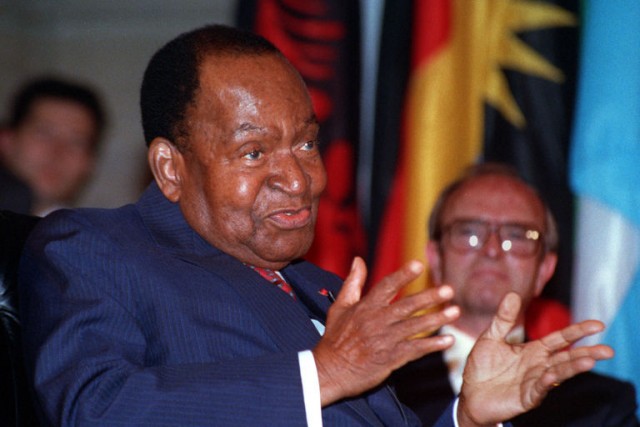Houphouet-Boigny, Felix
1905–1993
President of Ivory Coast
Felix Houphouet-Boigny, who served as president of IVORY COAST for 33 years, was one of the most powerful and influential politicians in Africa. The son of a wealthy Baule chief, he attended French colonial schools and received a degree as an African physician, the highest medical degree an African could obtain under French colonial rule. Because his family was part of one of the largest and most socially dominant ethnic groups, Houphouet-Boigny automatically received a high social status. This status helped him become a successful member of the African elite, as he practiced as a physician from 1925 to 1940 and served as chief of his home district before becoming a successful planter. Despite his social status, however, Houphouet-Boigny never lost sight of the fact that others in his country were less fortunate than he was and that he should help whenever possible.

After his successful medical career, Houphouet-Boigny became a coffee planter and worked to organize African planters. In 1945 he was elected to the National Assembly of France. He became a national hero by overseeing the passage of a law that ended the use of forced labor by Africans on French colonial PLANTATIONS. The next year he founded the Democratic Party of Ivory Coast (PDCI), which still controls the country.
When Ivory Coast gained its independence in 1960, Houphouet-Boigny was elected president almost unanimously. He established a single-party state, but his ruling style emphasized rewards and compromise rather than force and intimidation. While other African countries were attempting to industrialize, he stressed agricultural development. His approach proved highly successful. He also managed to control the rivalries between ethnic groups that split many other African nations. Under Houphouet-Boigny Ivory Coast became one of the most prosperous and peaceful countries in Africa. In 1990 he was reelected for a seventh term as president in the first multiparty elections in the nation's history. He died in office on December 7, 1993, on the thirty-third anniversary of the country's independence.